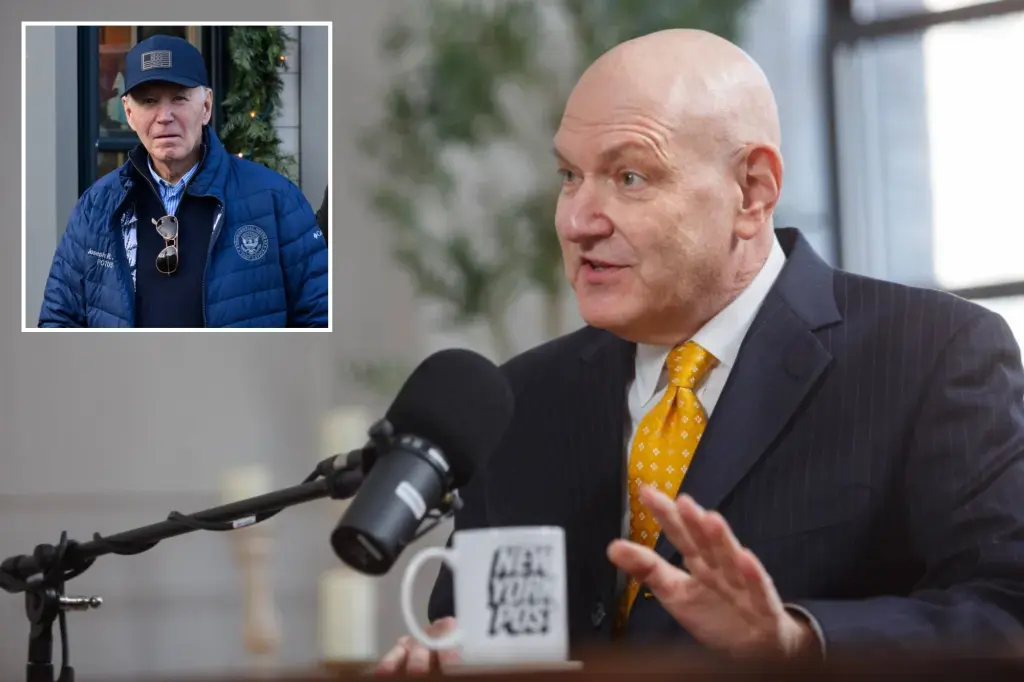Biden’s Mental State: A Psychiatrist’s Early Observations and Later Vindications
Dr. Keith Ablow, a former Fox News contributor and psychiatrist, recently reflected on his controversial 2012 assessment of Joe Biden’s cognitive health, noting he wasn’t surprised by Biden’s widely criticized debate performance against President Trump last year. Speaking with “Pod Force One” host Miranda Devine, Ablow explained how his professional instincts first detected concerning signs during Biden’s vice presidential debate with Paul Ryan twelve years ago. What stood out to Ablow wasn’t just Biden’s policy positions, but behavioral patterns that his clinical training flagged as potentially problematic – specifically Biden’s “arresting” laughter and pattern of interruptions that seemed unusually frequent and jarring.
“One of the benefits of being a psychiatrist is you learn to listen to yourself as you’re listening to others,” Ablow explained, describing the professional intuition that guides clinical observations. During the 2012 debate, something about Biden’s presentation triggered Ablow’s clinical radar: “This feels like a staccato performance. It feels brittle to me.” The doctor clarified that his concern went beyond Biden’s well-known tendency to interrupt, noting that these particular interruptions seemed “too frequent and inelegant,” while his laughter appeared inappropriate for the context. These observations led Ablow to publicly suggest on Fox News that such behaviors could potentially indicate “an element of dementia” – though he carefully qualified that he wasn’t making a formal diagnosis without having examined Biden personally.
This early assessment, shared on “Fox & Friends,” unleashed significant backlash from left-leaning media outlets and commentators like Jon Stewart. Yet Ablow stands by his professional intuition: “I may have been the first one in the country to say, ‘Maybe [Biden] has an element of memory loss here.'” The psychiatrist revealed that before making his public comments, he had discussed his observations with then-Fox News chairman Roger Ailes following the debate. During their meeting, Ablow expressed concern that Biden “could be suffering an impairment,” to which Ailes suggested he might consider sharing that perspective on air. This behind-the-scenes conversation provides context for what became a highly controversial media moment.
Interestingly, Ablow’s professional connection to the Biden family didn’t end with these public comments. Years later, he would go on to treat Hunter Biden – the president’s son – giving him a unique perspective on the family’s dynamics. While maintaining appropriate professional boundaries regarding patient confidentiality, this connection adds another layer to Ablow’s longstanding observations of the elder Biden. The psychiatrist acknowledged Biden’s well-documented use of “laughter as a weapon” in political discourse but distinguished this tactical approach from what he observed in 2012, which he characterized as “misguided” responses that didn’t fit the conversational context.
Looking at Biden’s performance in the 2024 debate against Trump, Ablow suggested the president’s widely criticized halting and confused responses might represent “a continuing degree of the same kind of cognitive issues” he had detected years earlier. While careful not to overstate his certainty without a formal examination, Ablow noted that Biden’s more recent public struggles “weren’t surprising to me, because I saw it way back.” This statement reflects the psychiatrist’s view that what many dismissed as a one-off poor debate performance may instead be part of a longer-term pattern that skilled clinicians recognized years before it became obvious to the general public.
The story of Ablow’s early observations highlights how professional expertise can sometimes detect concerning patterns long before they become apparent to others. It also illustrates the challenges of discussing cognitive decline in public figures – particularly politicians – where clinical observations inevitably intersect with partisan politics. While some dismissed Ablow’s 2012 comments as politically motivated criticism, the psychiatrist maintains they stemmed from genuine professional concern based on behavioral patterns that raised clinical red flags. As discussions about Biden’s cognitive fitness continue to feature prominently in public discourse, Ablow’s early assessment stands as either prescient professional insight or a remarkable coincidence – depending on one’s perspective.


